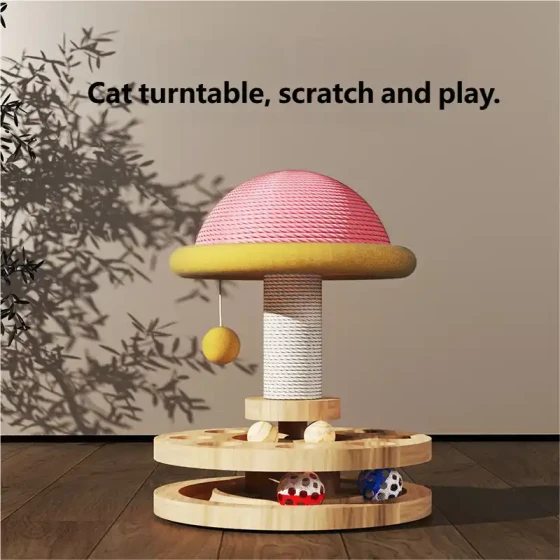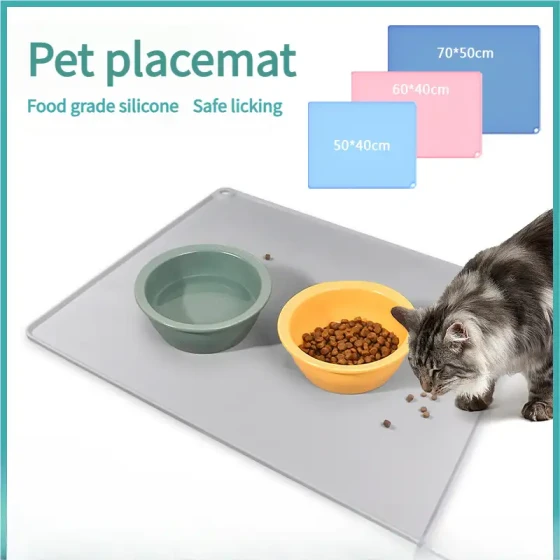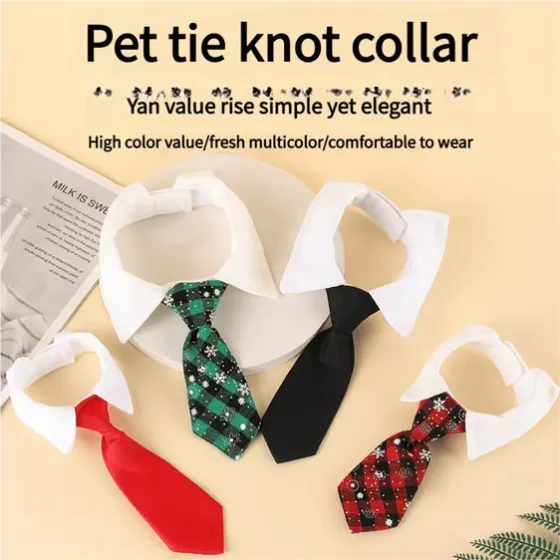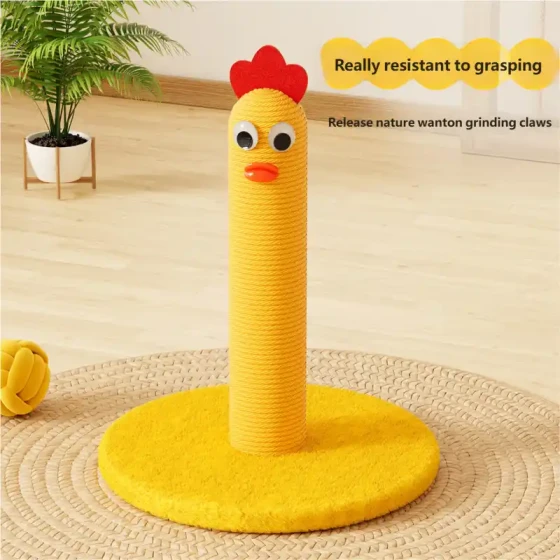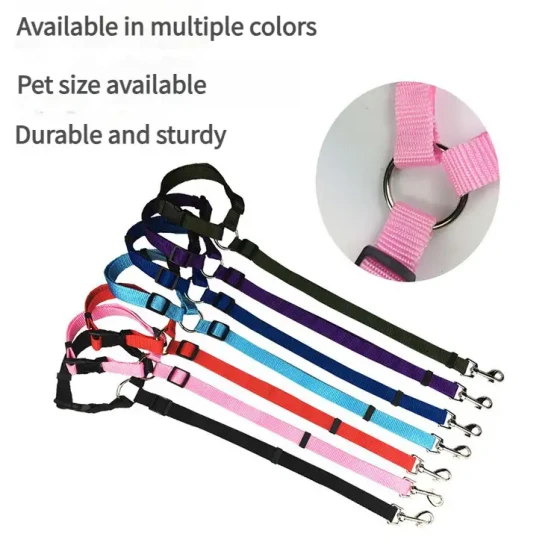Cat suddenly howling strangely then vomiting_Cat abnormal vomiting causes and response guide
A cat suddenly howling then vomiting is not a trivial matter and may be a physical "SOS" signal! While occasional vomiting of hairballs or regurgitating from eating too fast is normal, unusual howling or strange cries before vomiting accompanied by vomiting means cat owners should be extremely vigilant. Such abnormal behavior often hints at deeper causes, requiring careful observation and timely action.
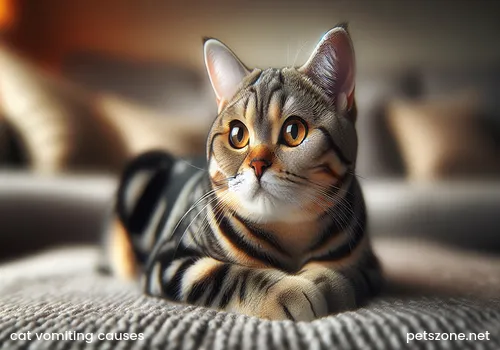
Cats are animals that tolerate pain well and rarely show discomfort unless absolutely necessary. Therefore, if you hear a cat howling or even screaming, it often means they are experiencing severe pain or extreme discomfort. When this pain or discomfort affects their digestive system, it may trigger vomiting.
Potential Causes of Abnormal Vomiting and Howling in Cats
Cats howling or making strange cries before vomiting, with vomiting following, can have many causes, ranging from relatively minor issues to serious emergencies:
1. Digestive tract foreign bodies
Cats are naturally curious and may accidentally ingest strange objects like yarn, plastic bags, small toys, etc. If these foreign bodies get stuck in the esophagus, stomach, or intestines, they cause pain and discomfort, stimulating the digestive tract and triggering vomiting. The lodged foreign body can cause intense pain, especially when the gastrointestinal tract tries to move it out, which can cause cats to howl loudly.
2. Severe pain
Besides digestive foreign bodies, severe pain in other parts of the body can also indirectly cause cats to vomit and howl. Examples include pancreatitis, severe gastroenteritis, urinary obstruction (particularly in male cats), all of which cause intense abdominal pain, making cats cry out and vomit. Pain from fractures, internal injuries, or accidents can similarly cause howling and stress-induced vomiting.
3. Food issues
Eating spoiled or contaminated food, or having allergies to certain foods, may lead to food poisoning or gastroenteritis in cats, causing vomiting. Severe food poisoning results in violent vomiting, diarrhea, and abdominal pain; cats may howl due to pain. Abrupt changes in cat food can also upset their stomach, causing vomiting.
4. Gastrointestinal diseases
Besides acute issues, some chronic gastrointestinal diseases such as gastritis or enteritis can cause pain and vomiting during flare-ups or exacerbations. Though chronic diseases may show few symptoms normally, severe episodes make cats very uncomfortable.
5. Parasites
An excessive number of internal parasites can irritate a cat’s digestive system, causing vomiting and sometimes visible parasites in vomit. Parasites usually don’t cause intense howling, but significant intestinal discomfort might occasionally trigger vocal distress.
6. Other diseases
Some systemic or metabolic diseases, such as kidney disease, liver disease, or hyperthyroidism (especially in older cats) may include vomiting among their symptoms. In severe cases, discomfort or complications from these diseases may cause pain and howling.
7. Stress response
Cats are sensitive animals; major psychological stress or sudden fright can induce stress reactions including vomiting. Vomiting caused by stress usually does not accompany howling, but if the stress is intense and causes extreme fear or anxiety, cats might vocalize loudly.
8. Imminent death
In rare cases, if a cat is elderly, frail, or suffering from very severe disease nearing end of life, vomiting and howling symptoms may appear. This signals bodily failure.
Response Guide: What Can We Do When a Cat Suddenly Howls and Vomits?
When this happens, cat owners should first stay calm, carefully observe the cat’s condition, and take timely action.
1. Observe carefully and record:
- Vomitus: Note the color, texture, and contents. Is it undigested food? Yellow bile? Clear gastric juice? Does it contain hairballs, foreign objects, or blood streaks? The vomit’s appearance provides many clues.
- Timing and nature of howling/strange cries: Is the vocalization before, during, or after vomiting? Is the sound a low moan or a high-pitched scream? How long does it last?
- Accompanying symptoms: Besides vomiting and howling, does the cat show other abnormalities like lethargy, appetite loss or refusal to eat, diarrhea, abdominal pain (resisting touch or vocalizing during palpation), rapid breathing, drooling, or arched back?
2. Temporarily withhold food and water:
During observation, to allow the cat's gastrointestinal tract to rest, temporarily withhold food and water for 4-6 hours. But ensure the cat does not become dehydrated, especially in hot weather or severe vomiting.
3. Check environment:
Recall if the cat was fed any new foods or treats recently, or if it had access to anything it should not have eaten (plants, cleaners, medications). Inspect the home for small items that may have been chewed or played with and gone missing.
4. Seek veterinary care promptly:
Take the cat to a veterinary hospital immediately if any of the following occur:
- Severe or persistent vomiting: Vomiting repeatedly within a short time or lasting more than 24 hours.
- Blood or foreign bodies in vomit: Coffee-ground-like, bright red, or pink-streaked blood, or visible threads, plastic pieces, or other foreign materials.
- Howling with severe pain: Cat shows obvious signs of pain such as arched back, hiding, vocalizing or aggression when abdomen is touched.
- Lethargy and weakness: The cat becomes very quiet, inactive, or unsteady on its feet.
- Diarrhea: Vomiting accompanied by diarrhea, especially watery or bloody stool.
- Signs of dehydration: Poor skin elasticity, sunken eyes, dry mouth.
- Abnormal breathing: Rapid, difficult breathing or strange sounds.
- Suspected ingestion of toxic substances: Exposure to poisonous plants, chemicals, or drugs.
Even if the cat seems better after vomiting, any episode involving severe howling should prompt a veterinary checkup to exclude serious conditions. Better safe than sorry.
At the hospital, veterinarians will perform a physical examination based on your observations and symptoms, possibly recommending blood tests, x-rays, ultrasounds, or other diagnostics to accurately diagnose and plan treatment.
How to Prevent Abnormal Vomiting in Cats?
Though some diseases are hard to prevent, daily care and management can reduce the risk of abnormal vomiting:
- Provide high-quality, balanced diet: Choose cat food appropriate for their age and health status. Avoid frequent food changes. If switching food, use a gradual transition method by slowly increasing new food proportion to allow gastrointestinal adaptation.
- Prevent accidental ingestion: Keep small household items, plastic bags, yarn balls, and other objects cats may ingest out of reach. Ensure houseplants are non-toxic to cats.
- Regular deworming: Follow veterinarian recommendations for routine internal and external parasite control.
- Regular grooming: Especially during shedding seasons, brush your cat frequently to reduce swallowed hair and prevent hairballs.
- Provide clean drinking water: Ensure fresh, clean water is always available.
- Pay attention to emotional health: Provide a safe, comfortable living environment and minimize stress triggers.
- Regular veterinary checkups: Even healthy-looking cats should have annual comprehensive exams to detect and treat early health problems.
Frequently Asked Questions
Q: Why does my cat vomit white foam?
A: White foam vomit in cats is usually gastric juice, often caused by prolonged empty stomach leading to excess stomach acid or gastric irritation. Occasional episodes with normal appetite and spirit can be managed by feeding smaller, more frequent meals. Frequent or symptom-accompanying cases require veterinary evaluation.
Q: Why does my cat vomit undigested cat food?
A: This is usually due to eating too fast or too much, or vigorous activity right after eating causing indigestion. Using a slow-feeder bowl or feeding small, frequent meals can help.
Q: Why does my cat vocalize before vomiting?
A: Cats vocalize before vomiting likely because they feel nausea, discomfort, or pain. This cry expresses their distress.
Q: If my cat vomits but seems fine afterward, do I still need to visit the vet?
A: Occasional hairball vomiting with normal appetite and spirit can be monitored at home. However, vomiting with howling, abnormal vomitus, or frequent vomiting should be evaluated promptly even if the cat looks fine.
Q: How can I tell if my cat is dehydrated?
A: Gently lift the skin on your cat’s neck or back. If it returns quickly to normal, hydration is adequate; if slow or remains tented, dehydration is possible and emergency fluid therapy is needed.
Summary
A cat suddenly howling and vomiting is an important bodily signal that must not be ignored. Understanding possible causes, carefully observing symptoms, and promptly seeking professional veterinary care are key to safeguarding your cat’s health. As responsible owners, we should closely monitor every detail, provide ample love and careful care, allowing our furry companions to live healthy and happy lives.
References
Symptoms of Cat Food Poisoning - Bull Pharmaceuticals
When cats show the following signs, owners should be alert! | Vomiting | Symptoms | Epilepsy - Netease
Signs of Cat Pain (Part 1) - Bull Pharmaceuticals
Is Yellow Vomit in Cats Significant? Various Causes, Types, and Treatments - Baby Bait
What to Do When Cats Vomit? Identifying Causes for Better Handling! - Netease
Wang Miao LingLing API Platform, Baimu Mojun V2.0 Empowering Pet Enterprise Service Upgrade - Sina Finance
[Pet Knowledge] Oh no! What to do When Cats Vomit? When to Seek Immediate Veterinary Care? - 2MonsterZ
[O-Care School] What to Do If Cats Eat Random Things?! Understanding Causes and Solutions of Feline Pica!!
Should I See a Vet Immediately If My Cat Keeps Vomiting? - Pet Home - New Footprints
Urgent Reminder! 3 Major Hidden Dangers of Frequent Cat Vomiting, Over 2 Times Must See a Doctor - Netease
Cat Keeps Vomiting and Refuses Food? Possible Gastritis - Tencent News
"Why Is It Vomiting Again and Again?" 7 Common Cat Vomiting Causes Cat Owners Must Know! - Australia YiYi Network
Taipei University Wenren Animal Hospital Near Banqiao, Shulin, Tucheng, Sanxia, Xinzhuang, Yingge - Specialized in General Surgery, Orthopedics
Reasons for Kitten Howling Before Vomiting - Himalaya
Six Special Signs Before Cat’s Death, Farewell Signals Before Cat Passes - MiaoMeng Network
What to Do If Cat Vomits White Foam and Refuses Food? - Pet Hospital
Cat Vomited Many Times Recently - Pet Home - New Footprints
Chinchilla Health and Diseases
Cats Tend to Vomit Just Because They Eat Too Fast? Vet Warns Don’t Ignore: If Frequency Exceeds This, Go to Vet Quickly | udn Pet Blog
Diagnosis and Treatment of Reflux Esophagitis - Login Cloud Veterinary
Why Do Cats Vocalize Before Vomiting (Why Cats Keep Meowing After Vomiting) - Himalaya Mobile
Why Do Cats Vocalize Before Vomiting (Why Cats Keep Meowing After Vomiting) - Himalaya Mobile
Cat. Incomplete Bowel Obstruction by Foreign Object (With Surgical Photos, Not for Sensitive Readers) - Hope Earth
[Popular Science] Causes of Cat Vomiting - Diary - Douban
Cat Shows Vomiting Behavior After Hearing Strange Sound, Beware Auditory Reflex Epilepsy Attack - Tencent News
Potential Causes of Cat Gagging and Hoarseness - Sichuan Veterinary Association
Cat Howled a Few Times Then Vomited - Himalaya
Things About Cat Vomiting
Essential Skills: How to Immediately Tell If Your Cat Is Sick
What to Do When Cats Vomit? Refer to 6 Types of Cat Vomiting to Decide If Veterinary Care Is Needed | Vomiting | Parasites | Indigestion
Considerate Cat Announces Vomiting with Meowing! Netizens Praise: Coming to Repay! | Pets | Cats - YouTube
Cat Vomiting White Bubbles? Gastrointestinal Expert Shows How to Solve - Claw Hill
2013/07 - Hope Earth
Differential Diagnosis of Vomiting - Login Cloud Veterinary
Cat Family Medical Encyclopedia - ProcessOn

